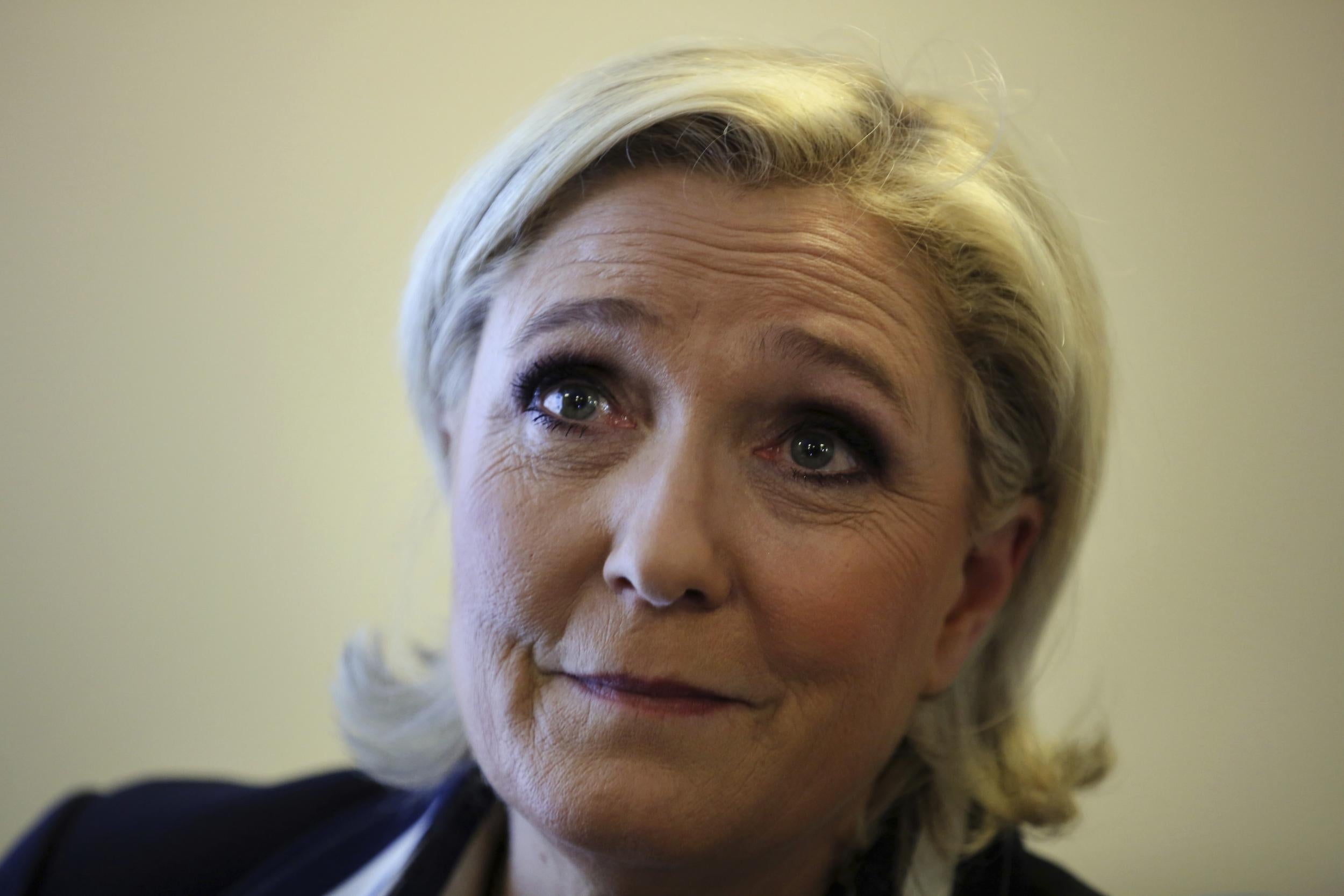Why does the far right always persist in French politics?
The British historian, Tony Judt, wrote that 'the things that were said and done in France in the years 1940-1944 were said and done by men who had been publicly active long before 1940'


Political parties of the far right are the single constant presence in French political life. So the distinguished Israeli historian and student of fascism, Zeev Sternhell, wrote of the presidential election in Le Monde recently. It is an interesting thought as we prepare for the second round on Sunday.
According to the polls, Emmanuel Macron has an 18-point lead over Le Pen. But as the vote approaches, Le Pen has gradually looked more solid and Macron less so.
In fact the far right disappeared from French politics for a time at the end of the Second World War. It could hardly be otherwise. For after the collapse of the French army in 1940, the French government signed an armistice with Hitler that led to half the country being occupied by the dictator’s forces and the other half being governed from Vichy by Marshal Pétain under German tutelage.
The Vichy government had the classic far right hatred of individualism, or what we would call liberalism. Pétain saw individualism as a parasite that “dissolved the nation”. Instead the emphasis would be on natural communities – the professions, the communes, and the region and, above all, the family.
Essentially, however, Pétain collaborated with the Hitler regime. When the war was over, he was tried for treason, convicted and sentenced to death, which was commuted to life imprisonment. But 20 years later Marine Le Pen’s father, Jean-Marie, who is now 88 years old, directed the 1965 presidential campaign of a far right candidate. He obtained 5.19 per cent of the vote. The far right was back.
Le Pen insisted on the rehabilitation of the Collaborationists, asking whether “General de Gaulle (was) more brave than Marshal Pétain in the occupied zone?” This isn’t sure, he said. “It was much easier to resist in London than to resist in France.” In 1972, Le Pen went on to found the Front National. Two years later he participated in the presidential election himself and obtained just 0.74 per cent of the vote. The contest was won by Valéry Giscard d’Estaing.
The Vichy government, however, had strong roots in pre-war politics. The British historian, Tony Judt, wrote that “The things that were said and done in France in the years 1940-1944 were said and done by men who had been publicly active long before 1940, and who had in their turn been influenced by things written and spoken by other men of the Third Republic (the system of government from 1870 to 1940).”
This points to the notion of a long culture war in France that started with the French Revolution. This is where the “individualism” or “liberalism” that the far right hates so much was first defined – in the famous words of the Declaration of the Rights of Man passed on 26 August 1789 to be exact, “men are born and remain free and equal in rights”. Sovereignty passed from the king to the nation. There was to be freedom of speech and of the press and of religious opinion.
To pick up the culture war a century later, France’s Catholic newspaper, L’Univers, vilified republican schoolmasters as “professors of atheism” and “missionaries of the modern mind” intent on corrupting “la France profonde”.
Leon Gambetta, who was prime minister in the 1880s, responded by declared that “Opposing us (the Republic) is only one enemy, but it is well organised, well disciplined, with an effective instrument in passive obedience, with a powerful lever in the money it worms out of every kind of foolishness and superstition, overcoming all obstacles because it has no scruples, and hating modern society, not only in France, but throughout the world. There is the enemy! Henceforth, I repeat, only two parties will be facing off: the republican democrats and the clericals.”
Macron’s description of his politics fits into this framework of a culture war. In his book Revolution (note the title) he calls himself a “liberal… if by liberal one means trust in man”. Le Pen, on the other hand, favours protectionism, supports economic nationalism, opposes the privatisation of public services and argues for the “de-Islamisation” of French society.
This provides us with a fresh way of assessing the results of the first round of the presidential election. Much was made of the novelty that the two mainstream parties, the Socialist Party and Les Républicains, led by Benoît Hamon and François Fillon respectively, had been eliminated. Rather the striking aspect is that the two representatives of the long lasting culture war, Macron and Le Pen, have survived to fight to the death this Sunday.

Join our commenting forum
Join thought-provoking conversations, follow other Independent readers and see their replies